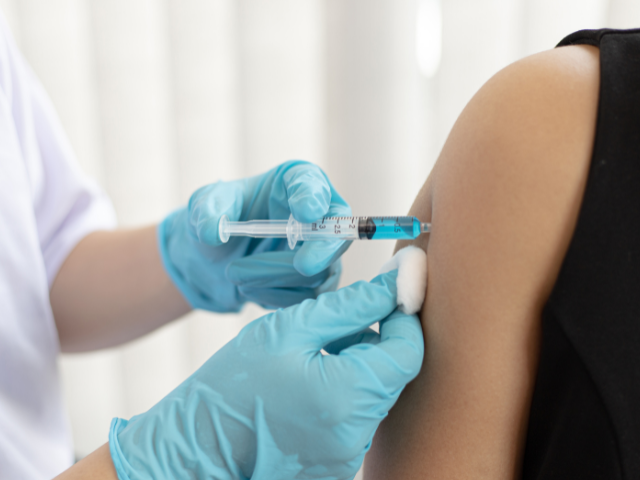
Wales plays integral part in vital immunisation research
Did you know that vaccines have existed for more than 200 years? Before their creation we didn’t have much hope when it came to battling infectious diseases. Thanks to research, we don’t have to worry as much about dying from illnesses such as polio or diphtheria.
This World Immunisation Week (24 – 30 April 2023) find out how vital research happening in Wales has helped to develop ground-breaking vaccines and immunised millions of people against potentially deadly diseases.
Starting with smallpox
From the 1700s until into the 20th Century, when someone contracted Smallpox it was likely to prove fatal. With no effective treatment and with the illness killing almost 60 million people worldwide, the outlook was bleak.
A key breakthrough came in 1796 when an early research study by Dr Edward Jenner showed inserting pus taken from a cow infected with cowpox into a small cut on the arm would provide immunity against smallpox.
Dr David Lewellyn, Integrated Wellbeing Networks Lead at Aneurin Bevan University Health Board, said: “When Jenner published the results of his research, he was considered a bit of a maverick, but by the early 1800s there were already lots of people across the UK who wanted their children and family members to be vaccinated. As few as five years after Jenner’s first vaccinations, it was already becoming quite well established.”
In 1980, the World Health Organisation announced smallpox had been wiped-out--thanks to vaccines.
Tackling a global pandemic
Over the last few years vaccines have been a huge part of our daily dialogue and by April 2022 over 2.4 million people had visited mass vaccination centres and GP surgeries across Wales to become protected against COVID-19.
Research teams in Newport played a vital role in developing the ground-breaking Oxford/AstraZeneca vaccine, recruiting almost 450 participants to the global study; the first of its kind in Wales. The team contributed to an immunisation programme that saved countless lives.
Dr Nicola Williams, National Director of Support and Delivery at Health and Care Research Wales, said: “I’m proud of the role our researchers in Wales have played in this UK-wide effort and I would like to thank the participants who have volunteered. Together we can make a real difference.”
Since then, researchers across Wales have taken part in severalCOVID-19 vaccine studies including developing the first plant-derived vaccine, the NOVOVAX study, which took place in Wrexham, and investigating the effectiveness of giving a COVID-19 vaccine and flu vaccine at the same time.
Today’s research, tomorrow’s care
Research continues into the development of vaccines to protect us against some of today’s biggest health challenges. From defending us against emerging new viruses to defeating cancer, research is essential to the future of health and care in Wales.
Professor Andy Sewell, Professor of Immunology and Wellcome Trust Senior Investigator at Cardiff University, is studying how the immune systems of certain individuals can clear end stage cancer.
He said: “I fully believe we’re on our way to cancer vaccines, which are much cheaper and a lot less invasive than current immune therapies.
“A cancer vaccine would go in and stimulate your killer T-cells to find and destroy cancer, then lay them down as a memory in your immune system. This is similar to how a previous infection or vaccine can stop you from getting that infection again. That’s my hope for the future.”
To keep up to date on all things health and social care related happening in Wales subscribe to our weekly bulletin and follow us on social media @ResearchWales.